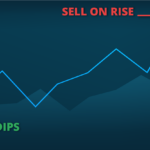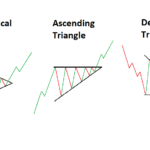Is ChAFTA Good for Australia?
Since becoming a forgone conclusion in 2015, the China-Australia Free Trade Agreement has been a topic of much debate at nearly all levels – from high-level government officials through banking experts and financial advisors to the average person on the street that has even a passing interestThe cost of accessing money not owned. in economics.
And with good reason: the massive trade agreement has become a major source of income and expenditure for all Australians and, as such, it will have both supporters and detractors.
With this article, we will attempt to examine ChAFTA to see which side exceeds the other, the benefits or the disadvantages, while leaving the conclusions open-ended for reasons we will later make clear.
What Is ChAFTA?
The agreement between China and Australia calls for about 95% of Australian exports to China to be tariff-free; this includes dairy, beef, and by-products. Additionally, Australian investments in China amounting to under 1 million AUD, will not be subject to the rigorous FIRB approval process, along with other various benefits to both parties.
Deal discussions went on for the better part of a decade, beginning in 2005 and concluding in late 2014, with the pen being put to paper in mid-2015 and coming into effect later that year.

What Benefits Does ChAFTA have?
Anyone who is even remotely interested in Australian finance and economy knows by heart that China is Australia’s #1 trade partner, but what not everyone knows is the extent of that relationship and its pure benefit to both nations.
So here are some numbers to help make things clearer:
Over the past decade, Australian exports to China have repeatedly broken new highs, peaking at over $12 billion AUD per month in 2019 and into early 2020. Over the same period, Chinese exports to Australia have gone from just under $1 Billion AUD per month in the year 2010 to slightly under $5 Billion AUD per month in 2019.
When taking these numbers into account, it becomes quite obvious why the agreement was drawn up in the first place. Deregulating and simplifying trade between nations would benefit both sides in many ways, least of which being that, were it not for COVID-19 striking in early 2020, the growth pattern would very likely have continued.

Easier investments and trade means that more companies trade while paying less taxes and tariffs, cheapening costs, and making further trade with the same nation even more worthwhile. And so, the cycle was due to continue, practically ensuring the continued prosperity of the agreement for everyone involved.
Now that you are more aware of the benefits of the agreement, it becomes necessary to ask a simple question that quite a few people have been asking in the years preceding the agreement and certainly in the time that has passed since it was signed and made into fact, and that question is:
Should Australia Stop Its Trade Dependency on China?
Considering all the benefits we specified earlier (and many more which we simply could not fit into this article for fear of turning it into a literal page-turner), it may surprise some to know that the agreement between Australia and China has quite a few objections. While those objections come from varying sources, they all revolve around a similar topic: Free Trade.
Agreement opposers claim that, while the agreement itself may be beneficial in the immediate term, it will likely end up doing harm in the long, as it disrupts Australia’s ability to freely trade with other interested parties across the globe.
While the China deal does not preclude Australia from trading with other parties, it does incentivise trading with China for many items, making it nearly a forgone conclusion that any surplusA trade balance that is positive as a result of income (exports on the national level) being greater... will head Beijing’s way and not elsewhere.

This has the potential to turn out poorly for Australia in a few ways, the most obvious one being China’s overall standing in the world.
China might be the second most powerful economy in the world (and an argument can be made for it being #1, at least in certain aspects) but it does face a lotAn amount or measurement. In forex – a standard unit of 100,000 currency pair units. of outside pressures to fix certain aspects of its policies, particularly in regards to human rights, wages, fair trade acts and of course – politics.
The U.S. has already gone through more than a few rounds of miniature trade “wars” with China, and it is entirely possible that further conflicts loom down the road.
Public opinion of China’s handling of Hong Kong and its residents is also sure to bring a lot of political consequence to China’s door; and since open war remains somewhat of a far-fetched option, financial war is a very possible outcome, assuming China continues its hard-line stance VS the world.
And if that turns out to be the case, anyone relying on Chinese imports/exports will undoubtedly be in a bind, as their import/export network would be forced to find alternative or avenues nearly overnight.
China has quite a few other avenues of export, including some which will likely not be forced into a bind by any such “western” moves – Russia, Iran, and other nations will gladly accept any goods the west declines to claim.
Australia will likely not have that luxury, which is precisely what ChAFTA detractors claim, binding Australia financially to a nation that faces rough waters in the near future and is reluctant to make changes (in the distant future), all of which may not be beneficial at all.
Which Side of The Trade Deal Do You Come Down On?
Just as with many other things in life, there are pros and cons to every side of the equation, so the question every traderA merchant who purchases and sells assets or services for profit. In financial markets, the trader b... or interested party must ask themselves is simply this: which side do you favour?
Do you believe supporting such a deal will be beneficial or detrimental to Australia’s financial future? Is it better to seek out immediate financial benefits and worry about the future at a later date, or should one always plan a few steps ahead? Do you supportThe price level that traders believe represents the lowest value an asset can reach. At this point, ... mutual trade agreements (which obviously come in all the colours of the rainbow) or do you tend to support a more free-market economy?
When you have your answers to those questions, you will likely know where you stand on the China-Australia trade agreement.











